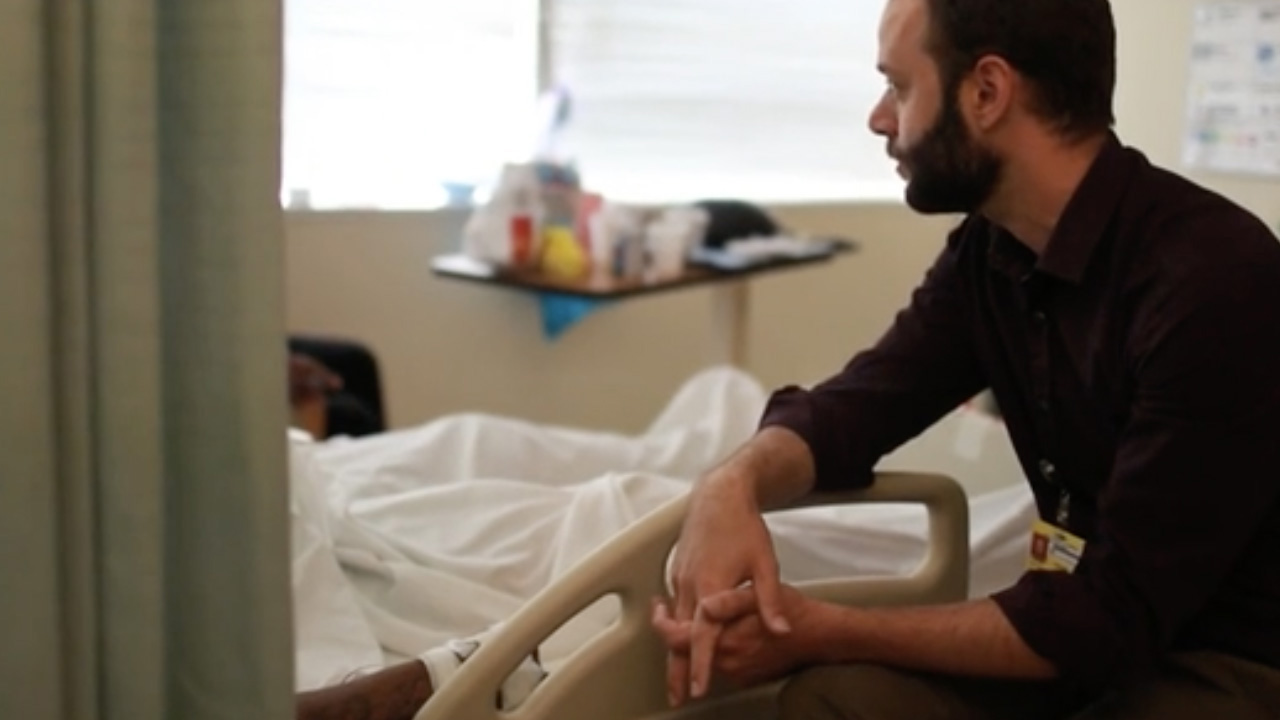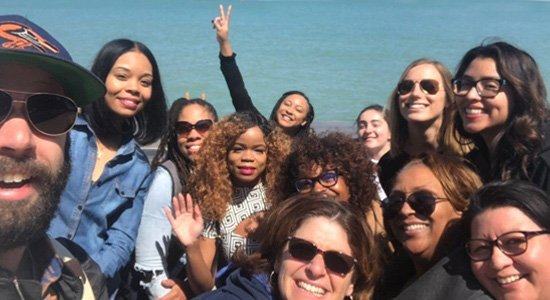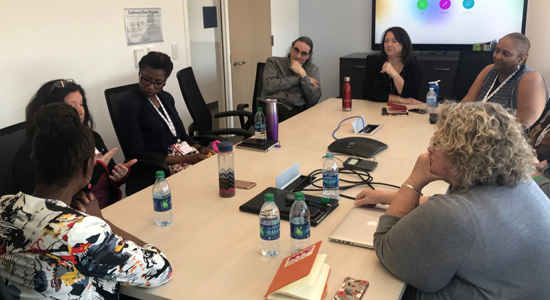How HHPC Helps
Healing Hurt People Chicago helps people who are violently injured when they enter the hospital and out in the community to help individuals, families, and loved ones recover from trauma, navigate the medical journey, and facilitate the necessary steps to successfully re-enter the community.

Social worker Andrew Wheeler meets with trauma patients at Stroger Hospital. (John J. Kim, Chicago Tribune)
We Meet People Where They Are
HHPC begins at the hospital bedside. Hospitals are scary places, and patients often have intense emotional and practical needs. They are in pain and have to manage conversations with doctors, family and friends, all while worrying about the future.
The time immediately following a violent injury can also be dangerous, a time when people are more likely to commit further violence out of retribution or stress. This can create a cycle of trauma, stress, and violence.
But the time following a violent injury can also be a golden hour – an opportunity to break the cycle of violence, re-examine priorities, and get the necessary support for positive growth. We want to make this opportunity possible, no matter where someone is in their life’s journey.
Our clinicians provide a range of assistance in the hospital, including:
Team Support
We provide crisis intervention, psychological first aid, safety planning, psychoeducation and psychotherapy.
Patient Advocacy
Connect to Services
We facilitate access to crime victims compensation program, legal aid, violence intervention services, housing organizations, and acquiring basic needs.

We Engage Beyond the Hospital
Going home after a traumatic injury can be difficult. Sometimes we forget that our minds impact our bodies, but trauma goes beyond the wounds we can see. Coping with trauma is about healing from both the emotional and physical experiences of being harmed.
The majority of people with violent injuries have already experienced other traumatic events. When someone has experienced a series of traumatic events over time, it is called complex trauma. This can make life difficult even when the physical wounds have healed, and our team of clinicians specializes in this kind of trauma.
To support HHPC participants after they’ve left the hospital, our team members:
Build Partnerships
We build partnerships with participants to understand basic needs and how they can be met.
Space of Stability
We act as an anchor or space of stability as participants consider their own lives, rather than telling participants what they should be doing.
Interpersonal Skill Building
We help participants build and rebuild relationships with people like teachers, family members, and employers through joint meetings and practicing effective communication.
Therapeutic Options
HHPC staff is trained to provide therapeutic options in unconventional ways, not just one-on-one in an office, but in participant’s everyday lives.
Necessary Services
We accompany participants as they access necessary services, modeling how to navigate complex systems.
Facilitate Groups
HHPC staff and peer leaders facilitate support groups using the SELF model.

We Advocate within Larger Systems
Basic Medical Care
Intensive Medical Care
Educational Support
We work with schools and teachers to communicate participants’ needs, access support, and seek accommodations as they re-enter academic environments after a violent injury.
Trauma-Informed Practices in Hospitals
Trauma-Informed Care in the Carceral System
Basic Medical Care
Intensive Medical Care
Care such as nursing aides, rehabilitation services, and supportive devices like wheelchairs or ramps require huge amounts of paperwork, phone calls, and time. Our team supports participants through that process, even when it takes years to accomplish.
Educational Support
We work with schools and teachers to communicate participants’ needs, access support, and seek accommodations as they re-enter academic environments after a violent injury.
Trauma-Informed Practices in Hospitals
We provide training for hospital staff on the impact of trauma, highlight opportunities for harm reduction within the medical system, and participate in the Cook County trauma-informed care task force.
Trauma-Informed Care in the Carceral System
Through relationships with probation officers and partners within the Juvenile Temporary Detention Center of Cook County, we provide education on how trauma-informed care can be beneficial to individuals and systems themselves.
Stories of Healing
Clara works alongside medical and nursing staff in the Stroger Hospital Trauma Unit in Chicago and assists patients and families as they arrive newly injured helping with immediate needs and providing support for coping with trauma.

